|
-Rev Melissa Fain- 7 After the Lord had spoken these words to Job, he said to Eliphaz from Teman, “I’m angry at you and your two friends because you haven’t spoken about me correctly as did my servant Job. 8 So now, take seven bulls and seven rams, go to my servant Job, and prepare an entirely burned offering for yourselves. Job my servant will pray for you, and I will act favorably by not making fools of you because you didn’t speak correctly, as did my servant Job.” 9 Eliphaz from Teman, Bildad from Shuah, and Zophar from Naamah did what the Lord told them; and the Lord acted favorably toward Job. Job 42:7-9 CEB I have been witness on more than one occasion to the rise of a Zombie Church. It usually hits at the end of something: The end of a tenure of a well loved pastor. The moment where brokenness also signals the end of religious innocence. No matter what it is there’s this knowledge in the air. Something has died. Something can no longer be. A fear can be felt. It’s static in the air. Suffocating in its truth. Then there’s this collective lurch. “No! It’s not over!” Something manic covers over the fear. And something old begins to sing out. “Look!” they’re internally saying, “We can still sing the songs! Look!” they plead with one another in upbeat verse, “It still sounds real!” And it does. Everyone is in on it. Everyone is singing, because to not sing is to admit the truth that something has died and can never be the same. These churches no longer live, because there’s no life in what was. At the same time, they cannot die, because they refuse to look forward. Instead they become undead Zombie churches. Zombie churches are churches that refuse to face death instead of heed the call of Christ. Power is misplaced in objects and people instead of God. When death of an institution is imminent the choice is to push into the institution instead of walk the path of God. Here are some hard truths about Zombie churches:
The only path out for Zombie Churches: Start by accepting the mourning.I believe these things have been voiced in wounded ways. Congregants have called out the institution of Church, but the Church hasn’t listened. This is because while the Church has lost its voice when talking about death, they have also lost the ability to translate the voice of mourning. This is why I’m coming in as a third party translator. At face value, the mourning process sounds very much like heresy. Heresy is an opinion that is profoundly at odds with accepted belief. In the church, it’s an opinion that hits against everything the Church has called right. Like Psalm 137 ends with wanting the Babylonian babies to have their heads smashed against the rocks. There's nothing Godly about that act, yet there it is in the Bible. It’s there to remind us God is still present when our voices speak the heretical truth. Not that God is going to grant our prayers, but listen to the yowling prayer of acceptance. The howl of truth. I wanna go back to a former post for a moment. I had written. Matt Stone and Trey Parker had called the Book of Mormon an “atheist love letter to religion.” Near the beginning, the two main characters go to their mission field, in Uganda. The tribe sings this upbeat song “Hasa Diga Eebowai.” to the main characters. As the song continues one finds out it is actually a song of lament. Their people are being slaughtered, their women are being raped, and AIDs is rampant. What does Hasa Diga Eebowai mean? F you, God. It’s heresy! One of the main characters completely shuts down and refuses to participate. But that song was the natural first step to new life! This heretical lamentation would set in motion a way for the people to find something better. Naming death, and mourning its consequence, had to happen first, and it does. These Zombie Churches are unable to sit in the lamentation of the people they’ve bitten. Job’s friends couldn’t do it, and the Church can’t do it. It’s so offensive. It’s so outrageous. Not really because they are saying F you, God, but because they are really saying F you. It’s a statement of accountability. F the people who come to drop verses, but not help. F the people who say they support change, but then turn around and walk away. F the armchair theologians who always have an opinion but never a solution. I mention Job because something’s going on there that I don’t think we’ve explored. How does Zombie Churches avoid hearing and accepting the mourning voice of the wounded? The Fourth FriendThe church claims the fourth friend when the mourning begins. What do I mean? In Job, the devil makes a bet with God that Job has it too good. If he could just tempt him a little Job would crack. God takes up the bet, and the Devil takes away everything, including his family. As Job laments his friends first try to console him, but it turns into chastising when they realize Job is truly lamenting. They don’t like Job’s truth. Then, this mysterious fourth friend shows up, Elihu. At the end of the book, when God finally talks to Job, he asks Job’s three friends to make sacrifice and seek forgiveness. No where is Elihu mentioned in the forgiveness narrative. First, Job is an ancient Middle East morality play. It is not in the historical parts of the Hebrew Bible, but in the Wisdom Section. Therefore, it was never meant to be a history. It’s meant to raise questions, and get us to think about our relationship to God. Old questions are replaced with new questions, and God lives in those questions. I hope my new answers raise new questions for you, where you will find God. Second, I’m of the mind, and I’m not alone, the fourth friend was written into the text by someone who couldn’t sit with Job either. God asking for sacrifices is an older text than anything Elihu. Which is actually fitting, because it speaks to how many react to Lamentation, or mourning. Churches write themselves a new part in the text, to write themselves out of condemnation. Only, Elihu remains unredeemed. When Churches write themselves out of the story of mourning, they choose not to take the sacrificial power of the mourner, and die to their old ideas and practices. Elihu is the Zombie ChurchSometimes I ask myself if I’m clear enough, and the answer is usually no. From now on I’m trying to be bluntly clear. In Job, God doesn’t ask for sacrifices for Elihu. Creating a new text to hide an old problem means Elihu doesn’t get forgiveness. The three friends find new life in allowing their toxic theology to die. Elihu, on the other hand, gets nothing because he listened to nothing, and accepted nothing. Now let me be extra clear. Suggesting Elihu doesn’t need forgiveness is bad theology. We all fall short of the glory of God. None of us are perfect. Elihu is the Zombie Church, pretending they are the young church they used to be, before the fear of death. Elihu is just as old as the friends, and is his own unreliable narrator. Notice something important here. Job is blameless. His scandalous mourning is blameless. God is with Job and with everyone who accepts Job’s truth. That’s where God has drawn the line. This whole problem of dying churches and undead churches is God telling everyone, “I’m here,” and us choosing to stand where God is, or not. We drew the line because we were afraid of where God went. We don’t get to decide where God is going. We only get the opportunity to follow. But, here’s the horrible truth: It’s easier for a camel to go through the eye of a needle than a Zombie Church to find their way again. What about those who were spiritually killed by the Church? Next week. I've had great reading partners this week for this post:
Elie Wiesel's Night Samuel Balintine's Job Carol Newsom's The Book of Job And my constant reading partner through all this: Walter Brueggemann's The Prophetic Imagination -Jessica Nettles- Pastor Melissa and I were chatting a few days ago about how the church treats those who it has “broken.” She’d asked me to write this piece, and I wasn’t sure how to proceed. She said something that struck me—“Right now, there is a ghosting of those who are broken by the church.” My first thought was that it wasn’t just right now. This has been happening for decades. Ghosting is a term that means “breaking off a relationship by stopping all communication and contact with the partner without any apparent warning or justification, as well as ignoring the partner’s attempts to reach out or communicate” (Wikipedia). What’s sad is that this sort of activity is built into the culture of many churches and the members accept that this is how things work in a church community. I’ve heard members say, “Well, they decided to leave.” While this may be true, if the church is the family it claims to be, then the church should be willing to face problems and deal with them honestly rather than placing blame, ignoring those sharing concerns, or using people until they have nothing left to give the church. It should also be willing to reach out to the person and find out why the person felt they had to leave the community. The point of Christianity is to honor God and take care of one another (this can mean inside the church and in the community). Many churches have devolved into organizational care taking i.e. what can our membership do to keep us going? How can we grow our membership to keep us going? This means that membership becomes a tool rather than a community or family. It can wear the mask of family and community, but underneath that smiling mask is something that is disturbing. I have watched and experienced the ghosting that stems from this attitude for years. 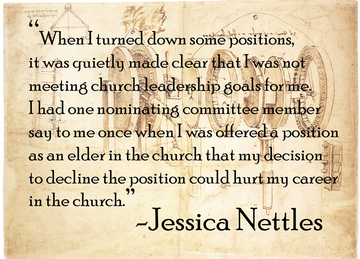 Before I tell you about my departure from church, I need to make something abundantly clear. The church did not break me. It failed me by using me till I was exhausted and had enough. I believe service to others is part of the Christian lifestyle. It is the best way to honor God. When an organization uses that belief in service to simply grow itself and raise funds to help itself without reaching out to others outside the church or to care for the wounded inside the church, that’s not Christian service to others. There is a saying that the church eats its own. I have seen this in action and the “eating” comes in many varieties. About nine years ago, I left a congregation I’d participated in for twenty years. Participation means I held positions in the church, worked on church things after I got off my real job, pulled my kids around as I did those jobs because that’s what I saw as service (I often couldn’t tithe monetarily and instead would do a time tithe, so my service was a tithe). Sabbath was not a rest day for me. I’d hit the ground running on Sunday mornings. This meant getting the kids together, driving to church, and working at various jobs before, during, and after services. This also meant extra time after services attending meetings and going places. There was no rest, and Sundays were driven by stress and anxiety a lot of times. I wanted to do other things, sometimes with my kids, but I had obligations. I even worked at home for the church. It was like having another job. When I turned down some positions, it was quietly made clear that I was not meeting church leadership goals for me. I had one nominating committee member say to me once when I was offered a position as an elder in the church that my decision to decline the position could hurt my career in the church. When I burned out (which was inevitable), there was nothing offered in the way of help or comfort. Instead of asking why or understanding my exhaustion, the response was “we need your wisdom and skills for this or that,” or “how will we do this without you?” or “there are so few of us working now.” Saying no was hard because it felt like I was saying no to God herself. I knew She understood when I said no, but I also knew that the church measured my worth to the community by how much I contributed in time. In the six months to a year before I walked away never to return, the congregation was more concerned with keeping the doors open than taking care of their own or the community. Now, to be fair, I understand how hard it is to make sure that a church pays its bills and is able to fund what it does. While a congregation pays attention to those matters, it would seem that someone would make a connection between that lack of funding and the on-going interpersonal problems that have led to this lack of funds. 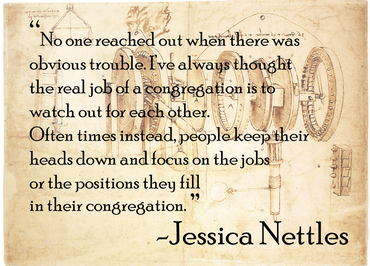 Often, no one would have any idea why a person left the congregation. In one instance, an entire family that served on our board and were elders and deacons left the church. They’d raised a few generations of kids there. When they left, no one went after them, and when I asked what had happened, the leaving was blamed on them (later I discovered that the departure was, in part, because no one wanted to listen to them when they advised against a major step the church board decided to make even though the advice was sound). There were even times when people were going through major family issues and no one would reach out or know what was going on until the troubles were over. In my own case, the church had no idea that my ex and I were having marital problems even though we argued and barbed each other for an entire year or so in Sunday school. My ex was a minister (we left the United Methodist Church after serving as a pastoral family for seven years) and very charming. People thought we were the “it couple” in the church (probably because of our provenance). When I announced that we were splitting, people were shocked. They had no idea. In fairness, there were members who immediately supported and surrounded me and the kids once they did know, but the fact that no one saw that there were deep problems with our relationship was strange to me. For a long time, I told myself that it was because we’d managed to build good masks and were able to pretend that we were okay. I certainly didn’t go to anyone and say, “My husband is emotionally abusing me.” Still, there were signs, and no one pulled me aside and said a thing. They pulled me aside when I was pregnant with my son and asked, “Are you pregnant?” but they didn’t seem to see when I’d come to church with puffy eyes from crying in the car or notice when I got more quiet than normal. I observed this kind of behavior over and over again with various people and situations. No one reached out when there was obvious trouble. I’ve always thought the real job of a congregation is to watch out for each other. Often times instead, people keep their heads down and focus on the jobs or the positions they fill in their congregation. Before I left, the congregation’s problems were growing. They couldn’t let go of a former pastor. They hired two pastors in a row who were toxic. The entire youth department left the congregation because they felt that the adults who they trusted wouldn’t support them when they brought their concerns about the pastor to the congregation. An entire youth department was ghosted because no one wanted to admit that a pastor was toxic. Instead of focusing on the issues that were causing the problems, the board would cycle. There’d be a committee formed and then a big kickoff party where the renewed mission statement would be revealed. Then there would be a series of sermons meant to light the congregation’s fire to work again. The same people (unless they’d left), would pick up the work even without real money to do so. The people who made a stink would either leave or be ghosted until next time around. Same song, different verse, same results. My decision to leave wasn’t a sudden decision. I began my leaving at the point where I sat in services and couldn’t see God for all the stuff cluttering my worship space. I don’t just mean the giant screens, meaningless worship chants, and the sermons with little to no value because those who delivered them were toxic. The burn-out and ghosting also clouded my view of God. Sitting in services became unbearable for me. When my kids said they couldn’t go back, I understood. I resigned from my jobs in an attempt to find peace. Then I found that I wanted to spend that time with my kids who were on the verge of leaving the nest. I left and tested a theory. After three weeks, no one from the church contacted me. After three months, still nothing. I had been on the board for years in some capacity. I’d been a deacon for years. I headed education for a while and even wrote for the church’s website and Facebook page. My children grew up in that congregation. No one came for me or my children. This hurt a lot, but it also solidified my theory that my work was valued more than my family or myself in that community. 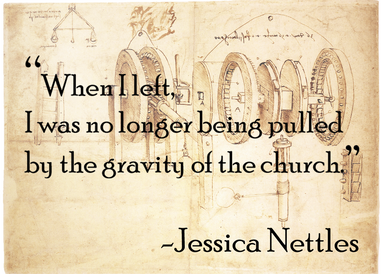 Once again, after all of this, I don’t consider myself broken. The church burned me out, but I didn’t break. I shifted. When I began thinking about this piece, this was the first thing that hit me. This led me to thinking about how planets rotate on their axels. For the record, I’m not an astrophysicist. I’m a fiction writer. Still, I am fascinated by space and how things in the universe work. All planets rotate around their sun (or suns…yes, there are really planets with two suns), but they also spin on a magnetic axis. This is why we have seasons, and why we have sunrise and sunset. What’s even more cool is that the axis itself spins as well. This spin is influenced by the gravitational pull of the sun and moon in the case of Earth. Astronomers talk about this using the term “axial precession.” Axial precession is “a gravity-induced, slow, and continuous change in the orientation of an astronomical body's rotational axis.” Focus on the “slow and continuous change in…orientation” bit. During my time in the church, even when I was ghosted, I wasn’t really broken. I was shifting. No one saw this shift but me and my closest friends (who, sadly, weren’t in the church). My rotational axis was changing. When I left, I was no longer being pulled by the gravity of the church. Some church folk would label this “backsliding” (my Baptist is showing here). To be clear, my love of God did not change in this shift. My desire to serve my community and take care of others did not shift. The only thing that shifted was my connection to the church. In my axial precession I found something I’d not found in a very long time in my life—freedom. I’ve learned to choose my obligations and not be afraid to say no if I cannot, even if that “cannot” equals “I don’t have the personal energy for that obligation right now.” I’ve found connections with people who respect, listen, and come after me if there is a problem. I’ve found church in other spaces and with people who I love. It’s too bad that the place and people who call themselves church often do none of these things for their members. There is a huge discussion right now in many denominations about what is killing their churches. The answer staring them in the face, but I’m not sure anyone will look to see the truth. It means that they have to do something different than they do now. I don’t think they are ready for that. -Rev Melissa Fain- Over the next few weeks I’m going to make a case that the problem with church is a pandemic, not a localized infection. To do this I have to focus in and separate. I’ll do this in multiple parts. From my end, I’ll discuss the role of Jesus as it has been forgotten, the undeath of church, and the real death of the broken. While I do this, I’m using Fig Tree to give the dead voice. I am going to let the ghosts of former congregants speak to you. I’m writing these things not because I enjoy watching it burn. Conversely, I’ve made multiple efforts to seek restoration and healing. Those efforts were never met with hostility, but ambivalence. If that ambivalence was intentional I would be calling to burn it down. Burn it to the ground, leave nothing but char marks. I, however, believe the church’s ambivalence is a symptom of the pandemic. Understanding the history of Zombie JesusBack in 1999 an episode of Futurama aired titled: When Aliens Attack. In the said episode the aliens of Omicron Persei 8 were watching episodes of a show mocking Ally McBeal: Single Female Lawyer. If all of this is going over your head, it’s okay. I’ve linked the synopsis to the post, and the synopsis isn’t terribly important to this story. Near the beginning of the episode the Omicrons discover their favorite show was cancelled during a cliffhanger episode. Enraged, they go to Earth and threaten destruction if they don’t produce more programming. In a throwaway line, they learned all cassettes were destroyed during the second coming of Jesus. One of the title characters, Farnsworth says, “Sweet Zombie Jesus.” The throwaway joke sorta died it’s own forgettable death. Probably getting a general chuckle as viewers watched Futurama in syndication, until around 2005 when it picked up a new life as a jab. It became a way for atheists to make fun of Christians. I would call this one low hanging fruit, but typically low hanging fruit is the staple of making fun of groups on the internet. Quick jabs for upvotes. It’s easy to call Jesus a zombie because he rose from the dead, and asked his followers to partake of the Body and Blood. Predating Zombie Jesus by about, oh 2000 years take away about 40 of those years, Romans made fun of Christians and Communion calling them cannibals. Today, the term “Zombie Jesus” seems to have died out, as it’s height was a decade ago back in 2010. Why bring it up if it’s dying out? Some of that question will be answered in the coming weeks. What we need to know this week is: Our understanding of Jesus Christ necessarily means Jesus is not a zombie. The definition of “zombie” has evolved over the years. We’ve had slow moving zombies that attack anyone and anything that has a pulse. We’ve had brain eaters, and flesh gnawers. Our culture has explored the infection being everything from a virus, a drug, and our lack of relationship. That last one is from Warm Bodies. It’s a fun read, and if you are a minister like me, a great story. There's almost universally one truth to Zombies: They die and become undead. Undead means they are not truly alive, but they are definitely not dead. For the most part there is no way to communicate and reason with a zombie. (I’m looking at you iZombie. You were fun to watch, but not exactly Zombie canon.) Zombies are to be feared. They're infectious. They're deadly. Almost universally, it’s better to die than be turned. DeathWe do not explore death as a church anymore, and that’s because we’ve turned the cross into a footnote. That’s fine for me. I live in the footnotes now. In fact, what I dislike about Walter Brueggemann’s Prophetic Imagination are his endnotes. That’s where the coolest info lies, and he moved it to the back of the book instead of putting them at the foot of each page. Most are not like me. They ignore the tiny text at the bottom of the page. Going to the celebration at Easter without exploring the death on the cross turns Easter into a meaningless act. I blame the Greatest Generation for this exclusion of death in our Christian voice. What? Are you shocked I’m not blaming Boomers? That seems to be the hip thing to do right now. What? I’m not allowed to say “hip” anymore. Fine, I’ll say it for myself, “Okay, Boomer.” Good? No? I don’t care. Here’s the deal. Before World War II, Americans lived a life very similar to the life we're living now, in that, people didn’t know one another. They were disconnected. We drew in instead of creating community. It was during World War II Americans learned about the worst parts of death. They were forced to explore its nature, and it terrified them. When they came home they did two things: First, they connected with their neighbor. The 1950’s was a boom for church because every communal group boomed. The Greatest Generation didn’t want what they left, they wanted something better. So, they created it, and nurtured it. Second, they protected their children. This is why so many Boomers were Girl Scouts and Boy Scouts. Those were the kid versions of the adult communal activity. Also, the Greatest Generation began cutting out death from the lexicon. They were going to protect their kids from the horror of war, and it led to a generation afraid of death. Naturally, that fear entered into the communal areas, and the cross was taken down, and open tomb was put up. When Boomers had kids many didn’t have a language to talk to their kids about death. Many Gen X have tried to figure it out on their own. It has been Millennials and Gen Z that have pushed into death. They're speaking to ends and conclusions in ways America hasn’t since before the War. Yes, fault can lie in trying to do the best you think you can do for your kids. The Greatest Generation cut out those two words, “Jesus died,” as an ill-conceived act of love. We need to put it back. Jesus DiedGod did not take away death, and for good reason. Creative force does not live in an undying world. It took me 38 years to realize this. Jesus died. We die. Pieces of the world die every moment. We should bitterly weep over that death. We’re allowed. To mourn is Christian. Now I know where some will go. “Well, in the Easter scripture Mary is asked why she is crying.” Basically, in some interpretations we are told not to weep. Wrong! We are to mourn death. We are to sit in it and realize what can never be again. Even in Jesus’ death, something permanently died. There was a relationship between Jesus and the Disciples, and Jesus wasn’t coming back to relive the glory days. Jesus died. The way those relationships existed died. The Disciple’s mourned. We mourn. For Jesus to come back to be the same would have been an undeath, not a new life. That’s why Jesus Christ is not a zombie. You cannot avoid death, but to ignore or numb yourself to it’s inevitably is to neither live nor die. Jesus gave us the example by embracing death, and letting us mourn. Christ returned as something new. If we cannot mourn what can no longer be, we will never see that new life. I pulled from three sources for this meditation:
Recreating the Church: Leadership for the Postmodern Age- Richard L. Hamm Prophetic Imagination- Walter Brueggemann (specifically ch 4) Wisecrack -Rev Melissa Fain- Paul, called to be an apostle of Christ Jesus by the will of God, and our brother Sosthenes, To the church of God that is in Corinth, to those who are sanctified in Christ Jesus, called to be saints, together with all those who in every place call on the name of our Lord Jesus Christ, both their Lord and ours: Grace to you and peace from God our Father and the Lord Jesus Christ. I give thanks to my God always for you because of the grace of God that has been given you in Christ Jesus, for in every way you have been enriched in him, in speech and knowledge of every kind just as the testimony of Christ has been strengthened among you so that you are not lacking in any spiritual gift as you wait for the revealing of our Lord Jesus Christ. He will also strengthen you to the end, so that you may be blameless on the day of our Lord Jesus Christ. God is faithful; by him you were called into the fellowship of his Son, Jesus Christ our Lord. 1 Cor 1:1-9 NRSV Corinth was an interesting place. It was the capital of Achaia. So if you could call the Roman Empire a country, Achaia would be considered a state. Corinth is to Achaia as Atlanta is to Georgia- judicially speaking. Corinth was also a bustling center of commerce. Its location was ideal for business because of its prime location between two major ports on either side of it. In some ways this means we could relate Corinth to, let’s say Chattanooga: located just off a river and pulling business from both Georgia and Tennessee.
I could visit the mix of Atlanta and Chattanooga. So far, sounds like a nice place to visit. Until we get to the rest of the story… Perhaps it was Athens, or maybe it was just being a capital port city, but Corinth had a reputation. If it was Athens, we know it was the Greek center of educational prowess. Corinth was just north of Athens, and it’s prime location would have been seen as a threat to Athens. Now, for those of you who know your history, Athens and Sparta rarely got along with one another. It didn’t help that Corinth usually took the side of Sparta when disputes broke out. Athens coined a term for those Corinthians: Corinthianize. This term is no longer in use, so let me give you a definition: Corinthianize means to make something lewd, raunchy, or sexually immoral. Whether it’s Athens responding to what they see in Corinth, or Corinth living up to its name, history marks the city as the center for prostitution and other immoral behavior. The biggest evidence we can use to pinpoint this fact is their city goddess. (All Greek cities chose one from their pantheon.) Corinth chose Aphrodite. You might be thinking Aphrodite is simiply the goddess of love, we, at the time she was better known as the goddess of prostitution. So, step aside Atlanta and Chattanooga, apparently Corinth is closer to another American City, Las Vegas. You know, what happens in Corinth, stays in Corinth. Except when it doesn’t, and apparently it didn’t. I need to back track just a little to explain. After Paul found Christ on the road to Damascus, he spent most of his time traveling and sharing the story of Jesus. Somewhere during his trip he spent a few weeks starting a church in Thessalonica, followed by spending two years in Corinth! While he was there, he roomed with fellow Christians who happened to also be tent makers, like himself. He got to personally know the people; knew them by name. Eventually he moved on and left for Ephesus. When he left, things were apparently going well. The church was thriving. The people apparently understood the message Paul had shared. They had even set up a community meal where all members could come and share in a love feast. I would imagine Paul was pretty happy when he left. Then the word got out. While he was in Ephesus things went wrong. It all began to fall apart. First, there was the war of tongues. Different leaders of the church began to pretend they were speaking in tongues even though they were really just gibbering. No one could translate what they were saying; even they were clueless. The leaders did it because they became obsessed with one-upping one another. Secondly, they were misusing the communal meal. The well off were showing up early to the meal. They would get off of work early, and they would gorge themselves on the food leaving nothing for the poorer congregants who showed up late. Third, when a member of the congregation would have issue with another member they would ignore the church leadership and go straight to the city court for resolution. This could have been something like a congregant suing another congregant for speaking falsely when all they would have to do was talk it over with one of the leaders. Basically, taking something small and blowing it out of proportion. And remember how everyone knew the message Paul preached before he left? Well, it didn’t take long for that to digress as well. Some people had taken Paul’s words about salvation through Christ and took it to mean they were currently living a redeemed life. That might not sound all that wrong on the surface, but they took it as an excuse to say they were redeemed while doing “Corinthianized” type things. Let’s spill some tea, stories of prostitution got back to Paul. It was going on in the early church. In fact, it was so bad, Paul heard word of a man who was sleeping with his step-mother! What happens in Vegas stays in Vegas, but what happens in Corinth gets back to Paul… in two ways. First, there were some concerned church leaders who took the time to draft a letter a letter which no longer exists today, but I bet if it did it would be a page turner. I’m sure by the time we read through it we would be adding some sins to the laundry list I just mentioned. Second, some Corinthian servants traveled to Ephesis, where Paul was currently working. They came to talk and “visit.” Everything I just said is beginning to sound like an episode of the Jerry Springer Show! So, like a tabloid show, let’s take a breather from it for a moment and do the sermon version of a commercial break: also known as a side story. Did you know Abraham Lincoln used to be harsh with the written word? He was terrible! When he had a personal issue he would immediately draft a letter and send it anonymously to an editor or drop it on the side of the road knowing someone would find it! He never thought his words through first. He never marinated in his thoughts, mulled through his ideas. That is, until he did it one too many times and it backfired. The person who had been insulted figured out it was Lincoln who wrote the “anonymous letter” and challenged him to a duel! AND! He almost had to participate in it, save for the grace of God it was cancelled just minutes before it was to take place. The event turned his life around. He realized the power of words. He thought first and wrote second. Smart advice. Never send the first draft of an angry letter. Wati a day, rewrite it when you had time to think about your words. That actually advice from Dale Carnagie’s How to Win Friends and Influence People. I bring up Carnagie’s book, and Lincoln’s actions because technically we never left Corinth and their debaucherious tale. How many drafts do you think Paul had to write before he penned the final version to send to Corinth? Let’s pretend, shall we? Draft one: “You are completely hopeless! You are sheep without a shepherd. You know! I’ve got other churches, and I leave for one minute, and some guy is sleeping with his stepmother! Come on Corinth! You were better than this! If I came back, I would simply be wasting my time. You’re not saved people, and you never will be! I’m sorry I’ve wasted your time, Paul. [Crumple that one up and throw it on the floor.] Draft two: “Seriously, I’m completely stunned at how deep into the world of sin you have gotten. If you got any deeper I wouldn’t be able to dig you out. Now, you’re not hopeless but there isn’t much hope there. Don’t do anything else. You are on the edge and you shouldn’t trust your own judgement right now. Rushing over as soon as I put my tents up, Paul. [Crumple that one up and throw it on the floor.] Maybe Paul wrote a couple of drafts before penning 1 Corinthians, maybe he didn’t. After all, he did not mince words with the Corinth people. He told them, in no uncertain terms, they were wrong. The truth is, we have no idea how he wrote his letters, we just have the end result. The end result is much better than those fake drafts I just shared with you: To the church of God that is in Corinth, to those who are sanctified in the Christ Jesus, called to be saints, together with all those who in every place call on the name of our Lord Jesus Christ, both their Lord and ours: Grace to you and peace from God our Father and the Lord Jesus Christ. SAINTS! He calls them saints. As Bart Ehrman writes about the saints of Corinth, “One wonders what the Corinthian sinners looked like.” I would respond, they are one in the same. We forget judgment is not our job. Once we label a group hopeless, or lost that is what they are- to us! There is no hope to help a group of people we have labeled hopeless. There is no finding a group we have called lost. We cannot save those we have sentenced as damned. Saint’s not because they deserved it, but because they were trying. Saints, not because they were perfect, but because they were striving. Paul begins his letter with hope. Maybe these people are getting started on the wrong track, but they are getting started. Pontis Pilate washes his hands while Paul gets his hands dirty. Choosing to walk Christ’s path means moving outside your comfort zone. It means getting to know the Corinthians of today by name. Whether you realize it or not, you are living among future saints, but not yet. They are waiting for you to tell the story. Think about it this way: You are the saints in the church today. Where would you be if you hadn’t heard the story? Did someone decide you were worth saving? Let me conclude with Paul’s own words: “He will strengthen you to the end, so that you may be blameless on the day of our Lord Jesus Christ. God is faithful; by him you were called into the fellowship of his Son, Jesus Christ our Lord.” Amen -Rev Melissa Fain- But the Lord hardened the heart of Pharaoh, and he would not listen to them, just as the Lord had spoken to Moses. Exodus 9:12 NRSV I've lived with this question for years. I wanted to know how to save Pharaoh. If I want to save them all, I've got to want to save him too, right? Why would God harden Pharaoh's heart? Why would God allow the Plagues to continue when allowing Pharaoh's heart to soften would keep great tragedy from entering the land? If Pharaoh's heart were allowed to soften the plagues would have ended before the death of the first born. Think of the epic levels of loss on all levels. Crops were wiped out. The cleanup would take away from collecting the crops that were left. God softening Pharaoh's heart means there wouldn't be conflict leading to so much destruction. If Pharaoh's heart were allowed to soften all those first born children would not have died. I seriously only remember one full Sunday School class from my childhood. It's not that I don't remember pieces, but I can no longer connected them to the specific moment where I learned them. The Sunday School teachers, an older couple that just returned from Jerusalem, asked any first born child to raise his or her hand. I raised my hand. "You're dead," the wife said flatly to a little over half the class. (My younger sister found this hilarious.) Why would God commission death, and specifically death of children? If that heart was softened it would have been avoided. If Pharaoh's heart were allowed to soften the Israelites never would have left Egypt. Yeah, that's it. God didn't draw the line in the sand.God wanted the people out. Plague after plague had already happened and, it was the Pharaoh who didn't listen, who drew lines, that was stubborn beyond measure. God didn't harden Pharaoh's heart right away. Pharaoh hardened his own heart six times first. More than that, God didn't send some foreigner into Egyptian court. Moses would have been someone Pharaoh knew, grew up, possibly even loved like a brother. Still he was stubborn. Six times stubborn. Here's why there is no such thing as a just war. War always has a very long fuse. There are historic moments where the fuse can be extinguished. Sometimes months, but more often times years in advance. When the bomb of war finally goes off, the lines are drawn not because God wants those lines to be drawn, but because the options to peace were ignored for years. Even if Pharaoh's heart was softened, he wouldn't want peace like God wanted peace. Pharaoh didn't want God's choice. It was Pharaoh who put God on the other side, not God. And guess what? When the people finally left Egypt there were Egyptians that left with the Israelites. God's line is an ideology, not a people. God wanted freedom, and Pharaoh wanted power. How does Israel stay in Egypt?As slaves. That's it. Listen, I fully and completely believe the people are not the problem. The system the people use is the problem. The side that was just fine didn't see a problem with slavery. This was because they couldn't see. They were too comfortable to see. More than that, it didn't matter that at the seventh plague Pharaoh's heart could have softened. He wasn't going to change. It's very difficult to get people who are comfortable to give up their comfort for someone else's discomfort. It's relational. It's ignorance. If they can't feel it, most people don't understand it. Ignorance can drive a world into darkness. Ignorance can silence oppression with false righteousness. It puts fault on the abused, because anything else would change the system, a system where the ones in power want to keep their power. That must be left behind if a new people are to find their freedom. Pharaoh's heart had to be hardened, because God was separating the wheat from the chaff. The peoples had already picked their sides by the time the seventh plague came around. They had drawn the lines; not God, but God had chosen a side. This month I've been reading Walter Brueggemann's "The Prophetic Imagination." Chapter one is a great reading partner with this post.
-Rev Melissa Fain- I had so many important moments in seminary. These were moments that have shaped my ministry and focused me on my call. To just pick one would be foolish. Yet, I can pick a specific moment that has recently attacked me in ways that has guided me in the present. It is a moment that keeps me anchored and lets me go. I was taking Disciples of Christ polity. It was at Columbia Theological Seminary because Candler School of Theology didn't teach it. The only professor offering the class in Georgia was and is Dr. Jerry Gladson. Across the hall was the office of Dr. Walter Brueggemann. I remember musing about how close yet how far I was from him. (His writing has since formed many of my theological groundings.)  There was a night we watched this retelling of the story of Alexander Campbell. It was kinda Soap Opera(ish), on an old, worn out, VHS tape. I tried to find a digital copy so I could link it, but there are no remnants of it's existence online. It was the actor playing Campbell, holding his coin. It was a coin earned so he could partake of the sacred elements of Communion. I watched as he stared at this man on the street, so hungry for food, but unable to come in the church because he lacked the coin. Campbell walked in for communion, tossed the coin in the plate, and walked back out without the elements. The act of Campbell tossing the coin without communion held weight for me. Who was going to know? He didn't yell it in the sanctuary before he walked out. He didn't threaten his departure. There was no reason. He knew what he was going to do. He didn't want anyone to talk him out of it, so why make the announcement? It was the strength of his conviction. Not knowing what was coming, but absolutely knowing it wasn't in that coin. In October made a private announcement of my intentions regarding the Disciples of Christ. I bitterly wept as I realized the truth. I couldn't stay. I made it official by writing a colleague and letting him know first. I followed it up by telling a private group. I was scared. I was devastated. I asked myself the question most people ask when they break up: What had the Disciples of Christ given me or Fig Tree over the past decade?
What was the denomination taking away? Everything.
This all came crashing back to me only a month later. Related side note: I'm easy to neglect. People see me, and I give the impression that I've got my stuff together. I get it. When I see a problem, I can make magic happen with paper clips and rubber bands. I can see potential where most only see trash. When the world is flooding I get ignored because I can tread water when others are drowning. Only water treading works for just so long, and even I run out of trash to turn to treasure. That moment always comes, and the people around me always lament the exact same lament: "We shouldn't have ignored you. We should have stepped up and worked with you." I figured if this time I screamed out, "Hey, I need help," they'd finally stop neglecting me. I thought if I was vocal about not being able to do it alone I wouldn't be doing it alone this time, but, hey, I'm just easy to neglect. In November the Regional Minister was told my family was dealing with some big things. I won't go into details, but know we are almost on the other side of it today. She reacted by calling me. If the region had fostered a relationship with me, it would have been a comforting call, but after being neglected for eight years it was a reminder of what I never had. More than that, she offered me a "coin." (She didn't know that's what she was doing, but God moments are often hidden to the voices speaking them.) She told me I could get help from the Pension Fund if I were a minister in good standing. There it was. I hadn't mailed in my annual standing form, but if I did, I could have a place within the system, and find comfort. She even suggested there could possibly be a church that would need digital ministry. Comfort and joy! Just, stay in the system. When we hung up it was so clear this was my Campbell moment. Give up the "coin" for those outside the church, or accept the "coin" and take "communion." I oh so quietly gave up the coin, and never called the Pension Fund, and never filled out my standing paperwork for 2020. Her call took away my deep sadness. So I don't bury the lede, I'm leaving the Disciples of Christ, and Fig Tree is coming with me.Yes, we're stepping away from a denomination, but not a tradition. I'm still a Restorationist. I still believe we're saving something beautiful and right, something that deserves to be shared and restored. I feel in the deepest part of my gut I am being called out. I've never resisted when called. I will go anywhere I've been called, even into the darkness. I have now followed that call through the darkness and survived. How could I possibly settle down in that sweet meadow when so many are chewing on rocks in the wilderness? I know that isolated feeling. I know their pain. There is no sweet comfort anywhere while that persists. Come with me too.Let me be crystal clear. I would rather let my call shrivel up and die with the others who are spiritually dying than go back into the system. At least then they know they're not dying alone. There is no calling me back. It's just... if you come with me we're not going to die, but finally live.
I've done the dangerous part. I took the first step. Anyone who comes with me will not be alone. Spiritual power comes in community. I will say, coming with me comes with a consequence. It will change you. It will give you sight. You will understand what I've come to understand. You cannot simply return from that. That's why it's a request. I won't force you to see the truth. I will say staying won't stop that feeling, that aching. I won't promise it'll be easy, because God knows it hasn't been for me. This is uncharted territory. I need spiritual cartographers to chart the maps we will be writing, and trailblazers & scouts who have the knowledge of the land to know the path ahead. I need help. That's it. I've done my part. I went where God asked me and called out. If no one answers it's no longer on me. I'm at peace. I'm free. Join me. |
Categories
All
Archives
October 2023
|



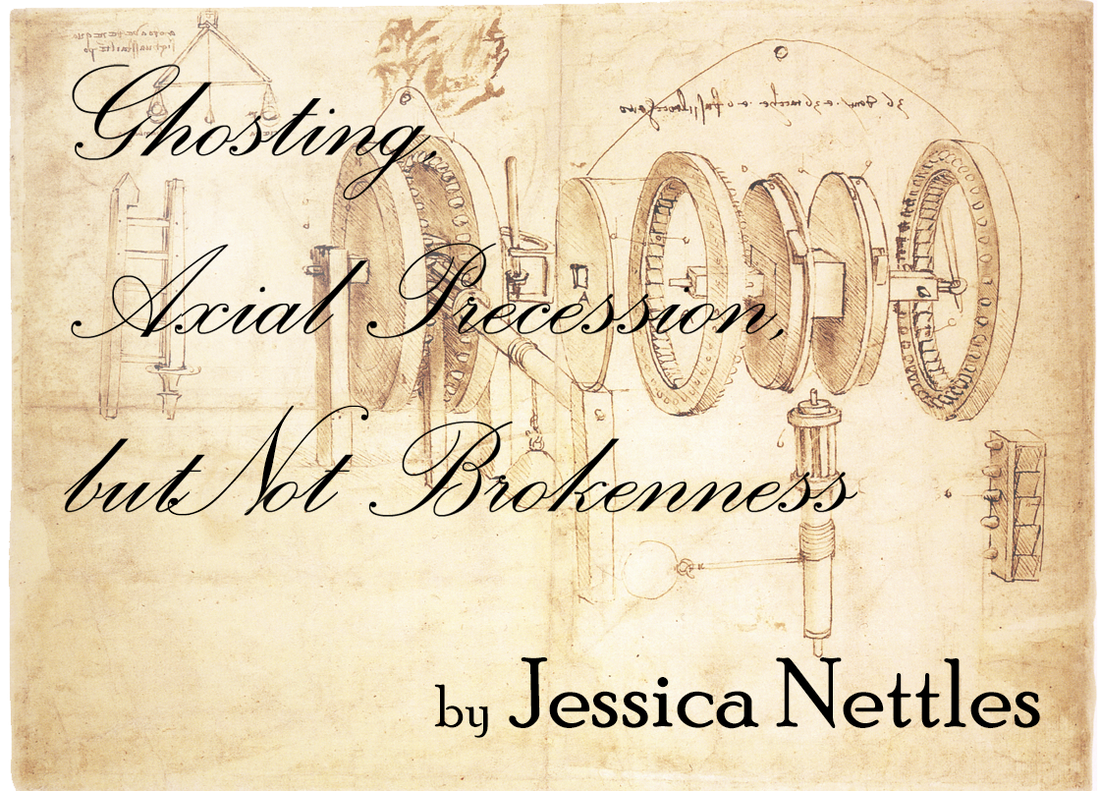
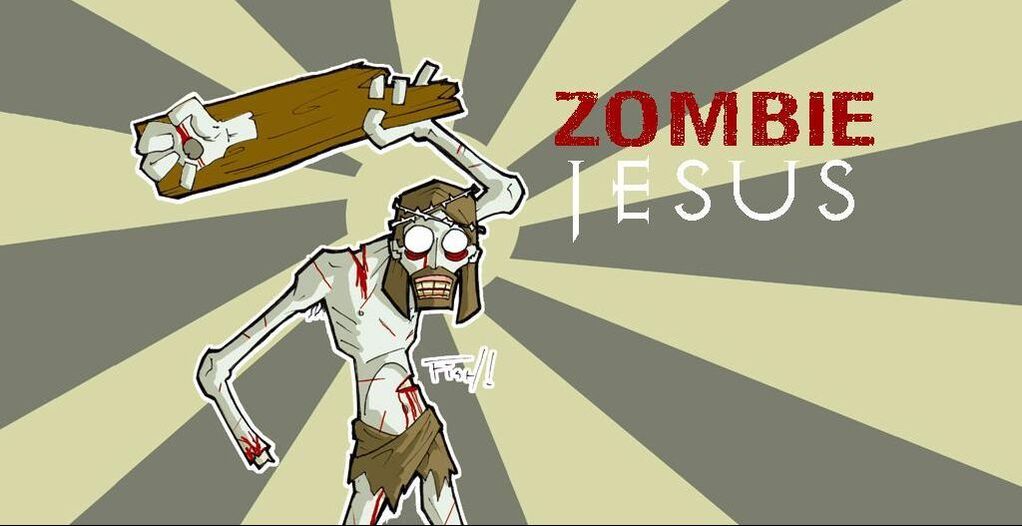
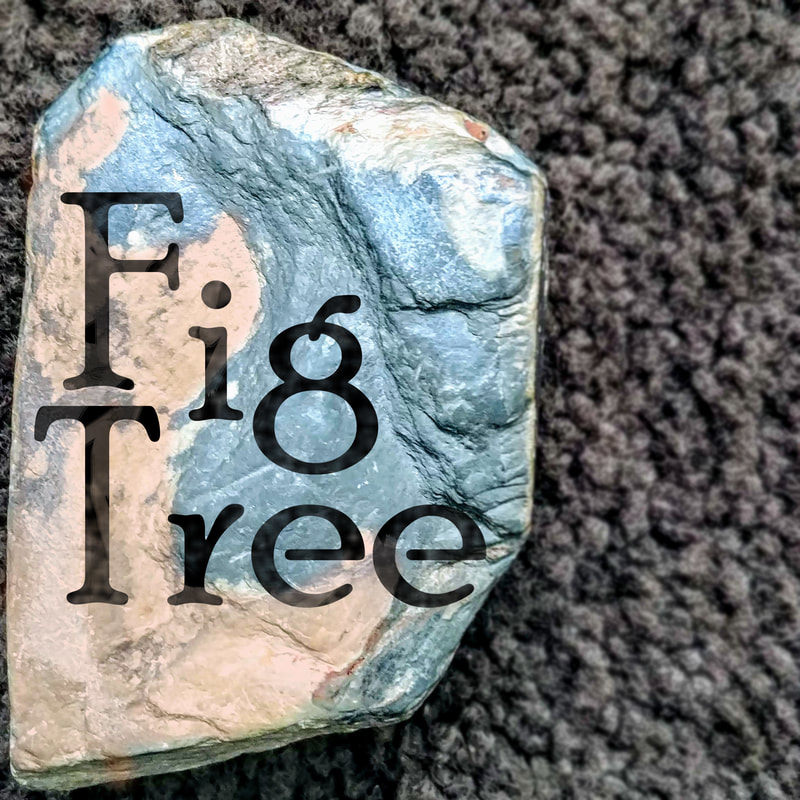

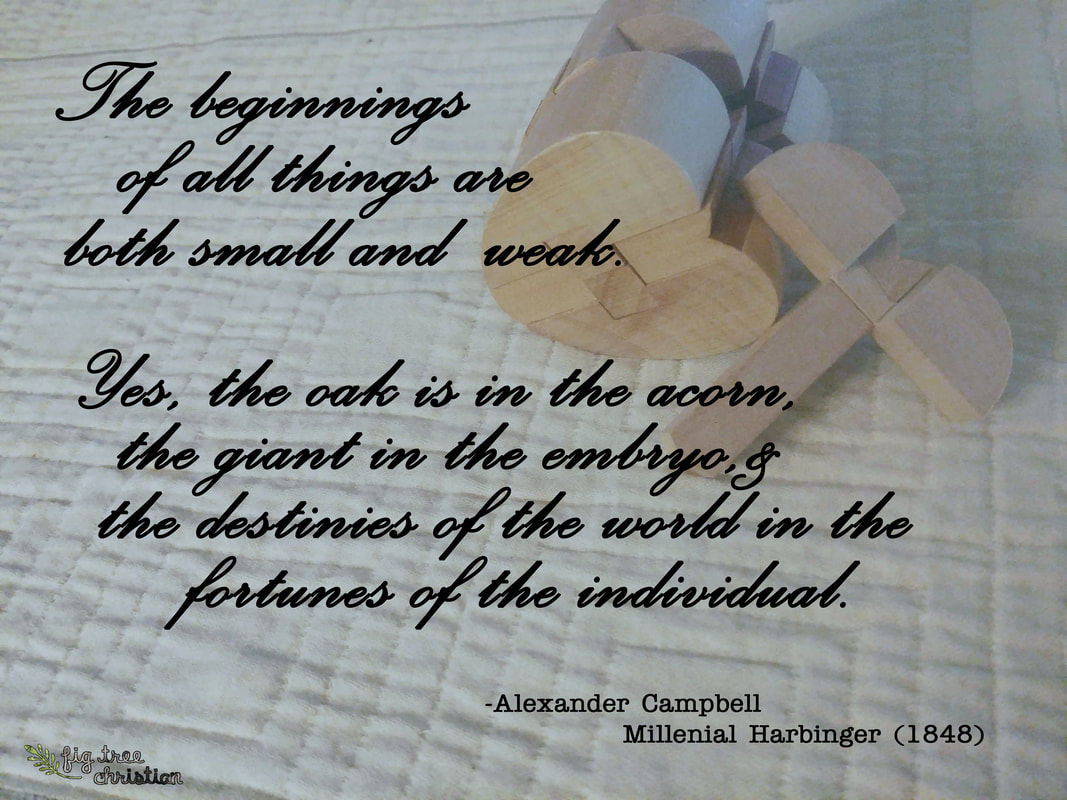

 RSS Feed
RSS Feed